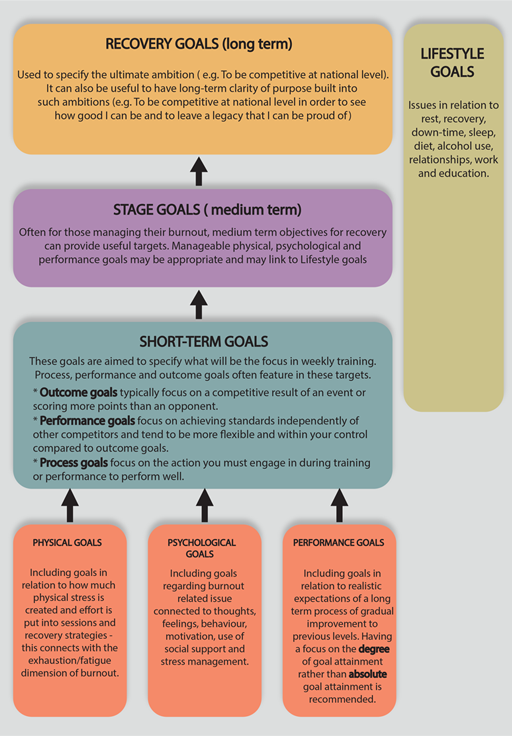4 Goal setting for reducing burnout
Appropriate goals are good for you. Striving for goals that align with your values and interests has a beneficial impact on work rate, performance and well-being (Smith et al., 2007). Evidence demonstrates (e.g. Isoard-Gautheur et al., 2013) that Achievement goal theory (i.e. creating a positive motivational climate) that you explored in Sessions 5 and 7 is a valuable perspective for managing burnout.
As for self-compassion, it seems there is also a relationship between perfectionism and personal goal setting (Stoeber et al., 2009). It is for these reasons that goal setting is particularly important to explore in helping manage burnout in sport.

Goal setting is a psychological technique that most people involved in sport and exercise are well versed in. Athletes are used to working towards targets and so targets are often a useful tool in any recovery from burnout. There is a wide variety of goals that might be set for reducing burnout and some of these are summarised in Figure 6. Setting goals can help focus the individual’s attention, keep them motivated and increase their adherence to burnout reduction plans.
You will now build on your existing knowledge of goals to look at what constitutes meaningful goal setting for those experiencing burnout.

